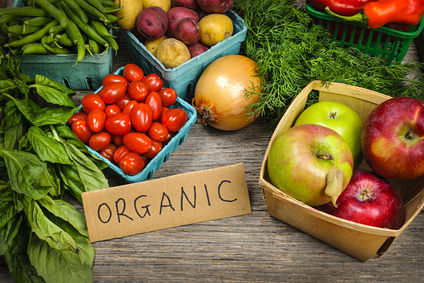
Specialty foods refer to items that cater to a specific audience such as organic, gluten-free, halal or artisanal food products. However, this overview will concentrate on the organic food market, as it is one of the most rapid growing industry sectors in Canada. Organic food retailers may offer a broad array of goods or focus entirely on one type of product which includes non-alcoholic beverages, packaged, prepared and snack foods and whole food categories. Retailers may also be food producers themselves, selling products online or through a home-based business.
Industry Overview
BC
According to the Canada Organic Trade Association, in 2012 British Columbia accounted for 22% of organic food and beverage sales (over $662 million) and was home to approximately 13% of all organic operators in Canada. While BC constitutes only 13% of Canada’s population, Statistics Canada reports that 26% of Canadian certified organic food sales is made by British Columbians. It is the strongest market in Canada. It has grown by an average of 11% since the recession, no doubt outpacing the growth of other food sectors (MacKinnon, 2013). To date, most of BC's organic production is exported to the United States, Europe and Japan.
Canada
Canada enjoys one of the strongest organic markets in the world. According to the Certified Organic Associations of BC, "Canada's organic market grew to $3.7 billion in 2012, with national sales of certified organic food and non-alcoholic beverages attaining $3 billion." The Canada Organic Trade Association reports that "An analysis of all distribution channels, from mainstream retail to farmers' markets, finds that total products produced, processed or packaged in Canada are worth $1.45 billion a year, capturing 51% of total food and beverage sales."
Industry Trends and Challenges
As noted by Shauna MacKinnon, the consumer profile of the organic buyers in Canada increase with age and they tend to belong in the urban and educated segment. The more Canadian consumers become educated about where their food comes from and how it is produced, the more they are making the switch. A 2014 articlein the Globe and Mail reports that 58% of Canadians purchase organic foods on a weekly basis. The top three Canadian performers in retail sales are fruits and vegetables, beverages (roast and ground coffee account for half of the sales), and packaged and pre-packed foods.
Canadians purchase most of their organic food products through supermarkets (31%), followed by organic food stores (28%), and local markets (27%) (Hamzaoui-Essoussi and Zahaf, 2012). For organic food products, understanding the trust orientation of the consumer is important in determining the choice of channel distribution or how to make other channels work.
Aside from the stiff competition between grocery retailers for organic food products, competition also exists between organic food products and those labelled as "natural," a vague and unregulated market that confuses consumers, says Sara Zborovski. As described by Agriculture and Agri-Food Canada, organic products are known to be more expensive and “natural" producers can sell their products more cheaply as they are not burdened with the same standards of regulation that organic producers are subjected to.
Resources
Associations
- Canada Organic Trade Association
- Canadian Organic Growers
- Food and Consumer Products of Canada
- National Association for the Specialty Food Trade
- Retail Council of Canada
Magazines and trade journals
Directories
Suggested search terms
Organic food | Organic market | Specialty stores | Sustainable food | Industry | Canada | “British Columbia”
Additional Resources
If you would like to access more resources, the Specialty Foods Business Accelerator Guide is designed to help prospective and existing business owners gather information for their secondary market research. The guide is broken down into four main sections that cover how to start your research, industry information, competitive information and customer information. Depending on your needs you can spend as much or as little time as necessary in each section.
If you find that you need more guidance before starting your secondary research, check out our Business Research Basics Guide, it will help you focus on what types of information you will need to gather and why it is important.
Related Guides
Organic Farming Business Accelerator Guides
Grocery Store Business Accelerator Guide
References
MacKinnon, Shauna. The BC Organic Market Growth, Trends & Opportunities, 2013, April 2013. http://www.certifiedorganic.bc.ca/docs/BC%20Organic%20Market%20Report%202013.pdf
Hamzaoui-Essoussi, Lelia, and Mehdi Zahaf. “The Organic Food Market : Opportunities and Challenges, Organic Food and Agriculture .” New Trends and Developments in the Social Sciences, Dr. Matthew Reed (Ed.). http://www.intechopen.com/books/organic-food-andagriculture-new-trends-and-developments-in-the-social-sciences/the-organic-food-market-opportunities-andchallenges
PHOTO CREDIT: Organic market fruits and vegetables, created on December 8, 2012 by SalFalko. Image made available under Creative Commons 2.0 Generic License. Last viewed on May 20, 2015.



